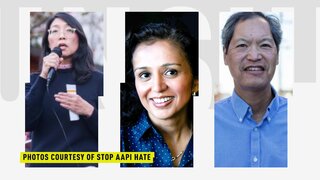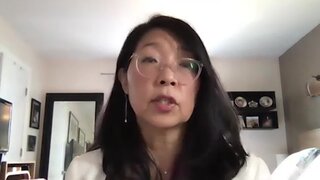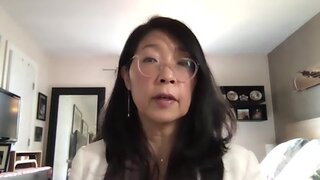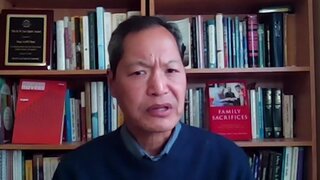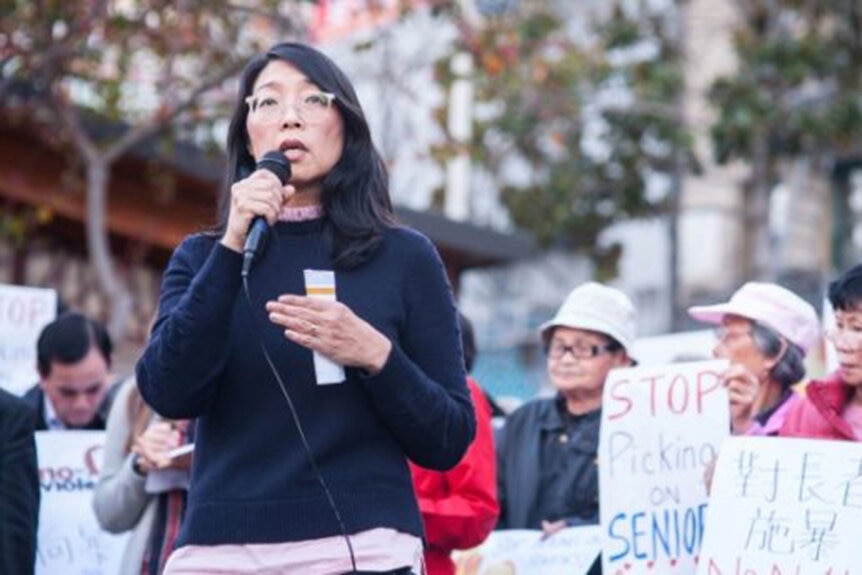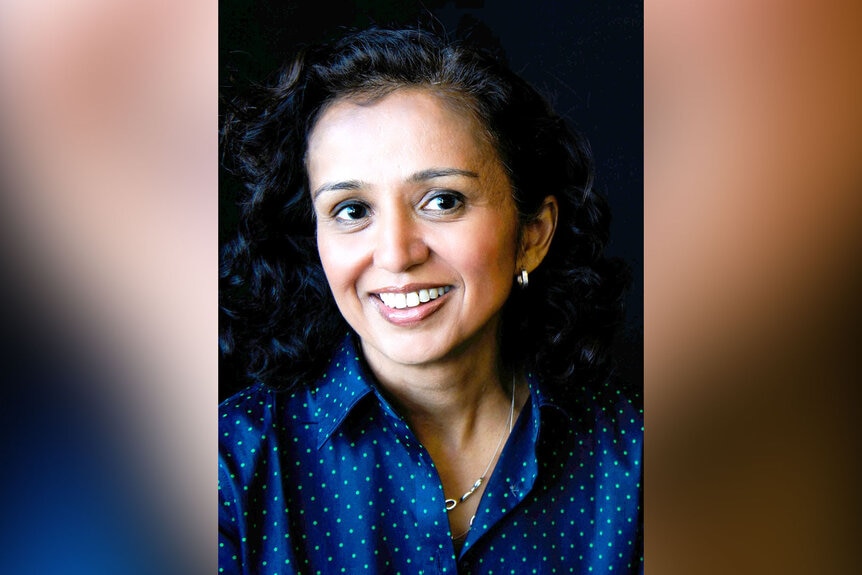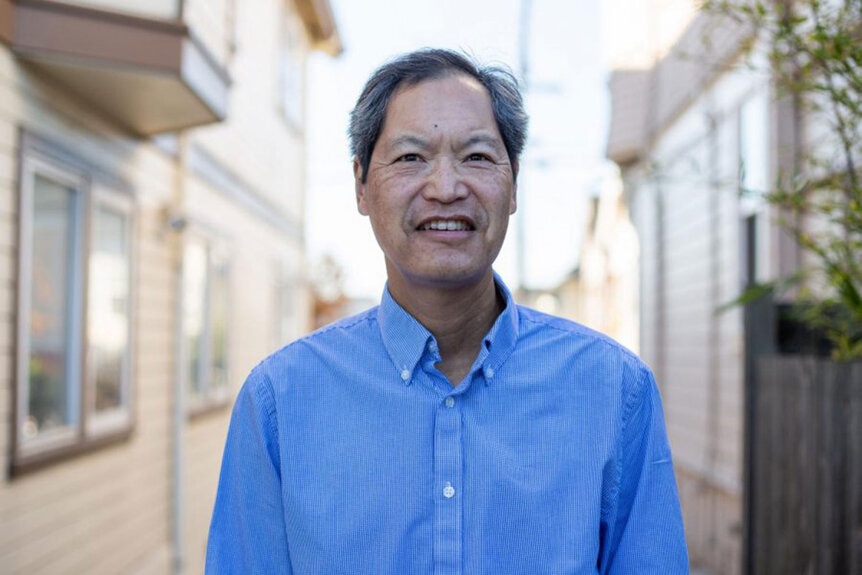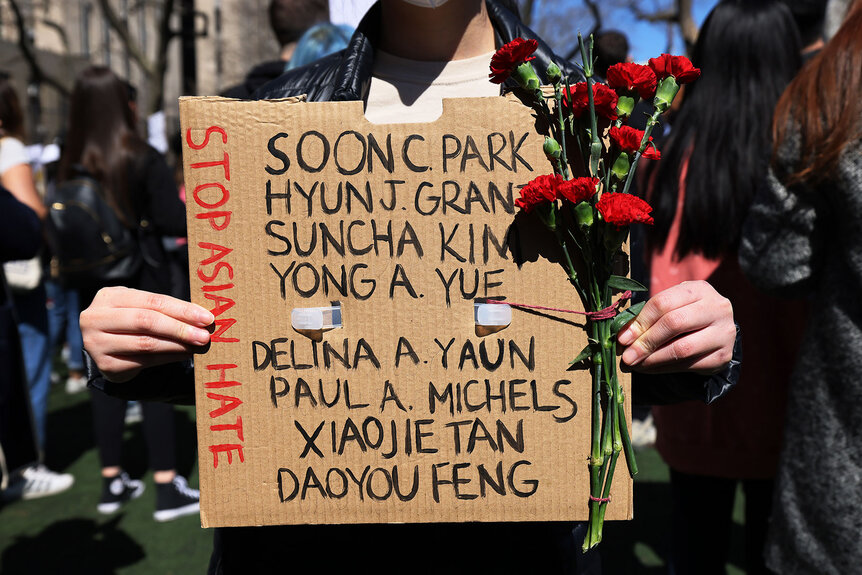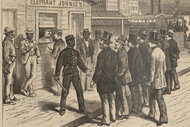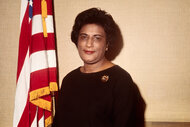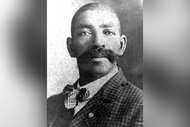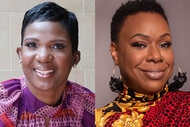Create a free profile to get unlimited access to exclusive videos, breaking news, sweepstakes, and more!
'Vulnerable Populations Are Being Attacked': Co-Founders Of Stop AAPI Hate Discuss Spike In Anti-Asian Incidents
Manjusha Kulkarni, Cynthia Choi, and Dr. Russell Jeung decided to launch the reporting center Stop AAPI Hate last March. It received nearly 3,800 hate incident reports in under a year.
In addition to common anxieties every person can experience amid the pandemic — going to work as a first responder, dealing with loneliness, or worrying about a loved one’s health — advocates within the Asian American Pacific Islander community also braced themselves for a possible uptick in Anti-Asian hate incidents and speech. To ensure reporting of any hate incidents are accessible and documented, three individuals created the center Stop AAPI Hate.
Cynthia Choi is the Co-Executive Director of Chinese for Affirmative Action, a community-based civil rights organization that focuses on immigration rights, job training initiatives, language accessibility in communities, and other enterprises.
Manjusha Kulkarni worked at the Southern Poverty Law Center, a legal advocacy organization, early in her career. She also worked as an attorney with a focus on civil rights; she's now is the Executive Director of the Asian Pacific Policy and Planning Council.
Dr. Russell Jeung is a professor and chair of Asian American studies at San Francisco State University and focuses on community-based research of marginalized groups.
In March 2020, they launched the coalition as coronavirus lockdowns began.
“We know historic precedent,” Choi said. “We knew that it was going to lead to endangering the lives of Asian Americans and that’s why we came together.”
The history of Anti-Asian racism in America indicated a need for anticipation of these incidents, according to the co-founders.
“This isn’t the first time Asian Americans have experienced hate on a broad level,” Kulkarni said. “We saw that with the Chinese Exclusion Act. We saw that with the Japanese American incarceration and so many things in between. The Supreme Court withdrew citizenship for all Indian Americans in the 1920s saying because they were not white, they were not entitled to citizenship.”
One underlying issue Jeung points to is the perpetual foreigner stereotype wrongly placed upon Asian Americans.
“We see that consistent in history in times of racism,” Jeung said. “Chinese exclusion, we were cast as unassailable, during Japanese incarceration we were disloyal traitors, during 9/11 Islamophobia we were dangerous terrorists, and now we’re threatening disease carriers. We’re always perceived as the outsiders who are dangerous and that’s a much more operative stereotype than being model minorities. It’s because we’re seen as foreigners and to be excluded, I think that gives people license to treat us inhumanely. That is why people are pushing and shoving our elders. People don’t see us as fitting in, as belonging.”
Now a just over a year since its launch, the center received 3,795 hate incident reports from March 19, 2020, to February 28, 2021, according to its 2020-20201 National Report.
The center got reports from all 50 states and D.C. The leading incident type reported was verbal harassment (68.1%), followed by shunning (20.5%).
Jeung says they received so many reports of Asian Americans being spit or coughed on, they created a separate reporting category dedicated to those types of hate incidents. He says his wife even experienced a similar incident.
"My wife was running in a running trail and somebody actually just blocked her path and coughed in her face,” Jeung said. “6-8% of our cases are people coughing at us. They’re treating us in such objectifying, dehumanizing ways.”
The attacks most commonly happen at businesses. Women report 2.3 times more harassment than men. In addition, youth and the elderly are being targeted. With both making up 12.6% and 6.2 % of all incidents, respectively.
“Vulnerable populations are being attacked,” Jeung said.
Kulkarni says perhaps perpetrators think women and senior citizens are physically weaker and may not be able to fight back.
“Some of those trends too, we know for women, are really similar to what we saw with the #MeToo movement, which is that so many women in our country do get harassed and attacked in their lifetimes, sadly this follows that pattern,” Kulkarni said.
Choi says one of the main reasons people stated they came forward is because they wanted to be a part of a collective voice.
“A majority of these incidents, I’d like to say, are not considered hate crimes,” Choi said. “They wanted to be a part of a collective voice to say this happened to me, this happened to my elderly parents, this is something that child experienced before the schools were closed, or you know while online, and these are things that I think deserve attention.”
The reporting center deals primarily with hate incidents rather than hate crimes, according to Choi.
“[A hate crime is] basically a crime plus some evidence or proof that it was motivated, you now, bias-motivated by that protected class,” Choi said. “That’s the legal definition within a legal framework and those certainly need to be treated very seriously and what I’d like to say is that if that over 90% of the incidents that we’re receiving through our reporting center they don’t fall in that category of a hate crime, but they should be taken very seriously because they are dehumanizing. There are potential civil rights violations that we're seeing, and we're concerned about the fact that these situations can escalate if we don't invest in interventions and preventative measures.”
Acts of violence that may fall into the legal category of a hate crime are being investigated in different parts of the U.S.
With 33 hate crimes already documented in the first few months of 2021 by the New York Police Department, New York City’s amount of Anti-Asian Hate crimes has already surpassed 2020’s annual total of 29, as reported W-ABC's CeFaan Kim.
On Monday, a 65-year-old woman was punched and kicked as her attacker said racist statements in broad daylight near Times Square in New York, according to police. A suspect, Brandon Elliot, was arrested and charged on two counts of assault in the second degree as a hate crime and one count of attempted assault in the first degree as a hate crime, according to the Manhattan DA’s office.
Legal aid attorneys for Elliot asked the public in the statement "to reserve judgment until all the facts are presented in court."
In Georgia, eight people were killed when a white man targeted Atlanta-area massage parlors on March 16; six of them were Asian women. Hate crime charges remain possible in the shootings.
“This latest attack will only exacerbate the fear and pain that the Asian American community continues to endure. There has been a documented pattern of recent attacks against our community," Stop AAPI Hate said in a statement about the shootings. "Not enough has been done to protect Asian Americans from heightened levels of hate, discrimination and violence. Concrete action must be taken now. Anything else is unacceptable.”
Reporting to Stop AAPI Hate helps inform their policy recommendations to address root causes, Kulkarni said. At StopAAPIHate.org, victims can report what happened n more than 10 language options, and individuals can document the date if a person's identity was targeted, and the nature and location of the incident. There are also ways to include any photo or video evidence.
“For us to understand what the problem truly is, to examine it, analyze it, and then to make those policy recommendations, we need each and every person who has experienced it or has witnessed it to share that information with us,” Kulkarni said.
The co-founders also hope to work in solidarity with Black organizers and other movements to end systemic racism.
“We’re all fighting to dismantle the same thing, which is structural racism,” Choi said. “We're fighting anti-immigrant policies, Islamophobia, we're fighting any attempts to dehumanize any group and that's really how we're going to be able to make ourselves safe during this time.”
Kulkarni brings up civil rights leaders who helped Asian American communities, adding that this moment is another opportunity to collectively find solutions.
"It is because of civil rights leaders in the African-American community that many of us in the AAPI community are even here in the United States,” Kulkarni said. "It's that opportunity now to pay it forward, in terms of my own work, and in terms of the solidarity with Black and Latinx communities is to be able to work together to develop solutions that help all of us.”
To learn more about resources for the AAPI community or to report a hate incident, you can visit Stop AAPI Hate's website.
